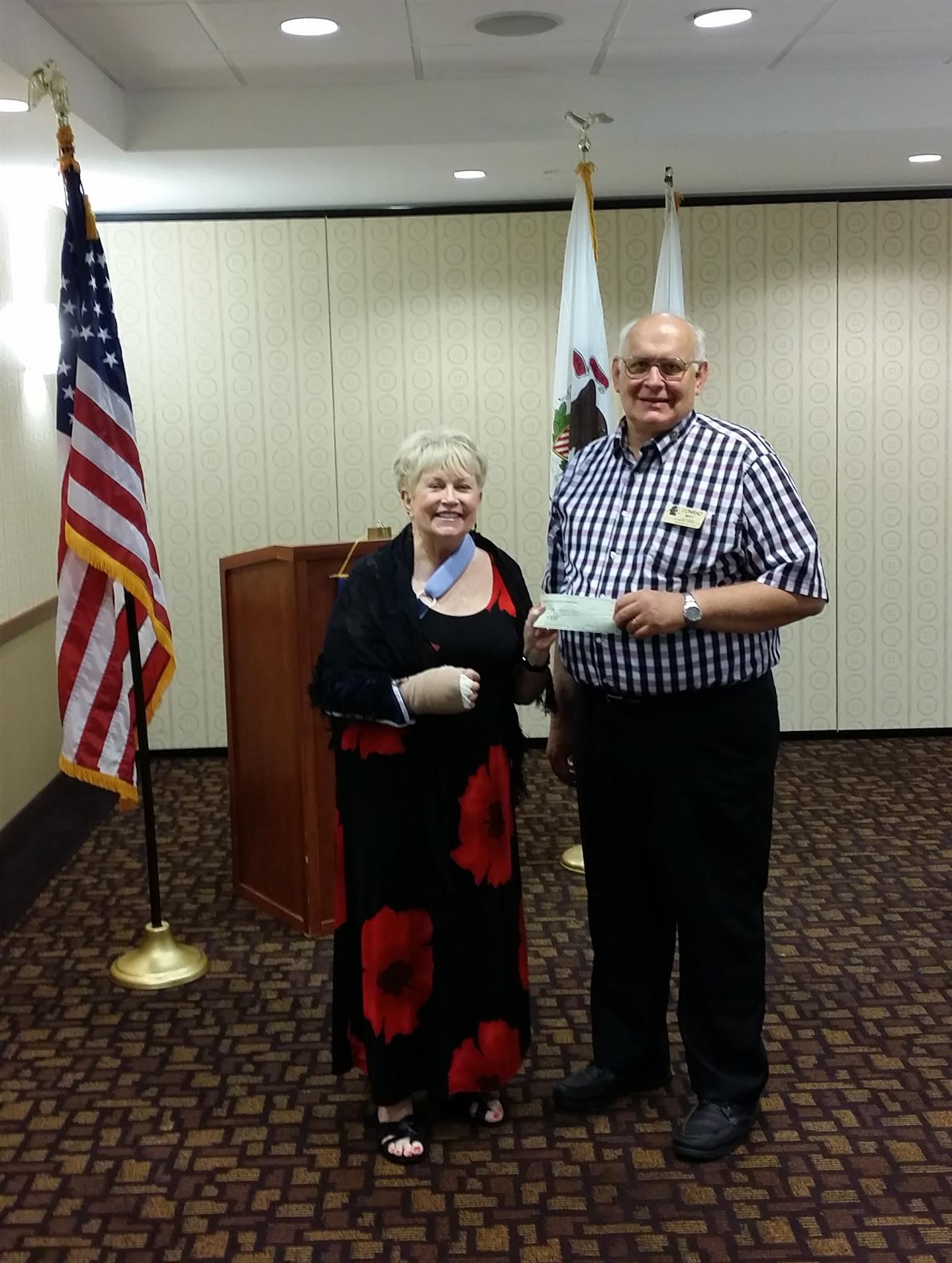August 31, 2015 Meeting
Posted by A. Todd
on Aug 31, 2015

Betsy Skidinski promotes Alzheimer's awareness and works to raise funds to find its cure.
We welcomed guests Assistant District Governor Tamiye Meehan, Betsy Skibinski and Jill Atkinson today. We were also joined by District Governor Rodney Adams who gave us an enthusiastic status update on the District. During his first quarter as DG, the district has seen increases in membership and participate among the clubs. This is especially significant because this is the time of year when when we typically see membership numbers drop. Rodney credits the motivation and energy of the club presidents along with the increased use of the institutional membership. Under this program, meeting attendance and other participation responsibilities are spread among several people at the same business or entity. This makes joining less of a time commitment while giving the club the benefits of the new members.
Betsy Skibinski was our speaker. Betsy is a retired teacher and current jewelry designer. She also spent years caring for her mother as she suffered from Alzheimer's.
Alzheimer's is one of several diseases that loosely fall under the dementia category of brain diseases. Others include Parkinson's disease and Huntington's disease. Five million people in the US suffer from Alzheimer's, two-thirds of them are women. It is the sixth leading cause of death in the US. Despite it's magnitude, it is an incredibly difficult disease to diagnose. There are no tell tale symptoms to watch for. There are no simple medical tests that can detect it. Only a full brain scan reveals its presence.
Alzheimer's sever's the brain's neurons and synapses connecting to memories. Through this process, some memories may last longer than other, similar memories. However short term memories are generally the first to be lost. This is a major component of the difficulty of caring for people with Alzheimer's - it wreaks havoc on their daily life before they even realize there is a problem. As the disease progresses, bodily functions are lost, ultimately leading to death.
Betsy offered some sound advice for the families caring for members with Alzheimer's. First and foremost - talk about your end of life care desires before anyone gets sick. Discuss finances and how they should be handled. This disease is incredibly expensive as professional care is called required for the long term. Talk about how you want to be interred. Make sure your family knows if you want a DNR or not. It is critical for everyone to be on the same page on issues like these.
Next, when a person is sick, do not contradict their incorrect statements - it just increases your level of frustration and theirs. They may know that what they're saying is incorrect, but can't find the right words. Simply agree with them and continue with your conversation. There may be windows of clarity your loved one goes through. Cherish these times but don't expect them to last or be remembered.
Betsy's mother's symptoms became apparent through erratic and increasingly dangerous driving. Taking away her keys was one of the hardest things Betsy had to do. As the disease progressed, Betsy's mother became increasingly OCD and would constantly clean her surroundings. Unfortunately, she often put things away in places where they couldn't be found.
Eventually, Betsy moved her mother to a nursing home. Betsy made sure that her mother's quality of life was maintained - she was still dressed stylishly as always. Her nails and hair were done weekly. She feels these gestures helped her as much as they helped her mother.